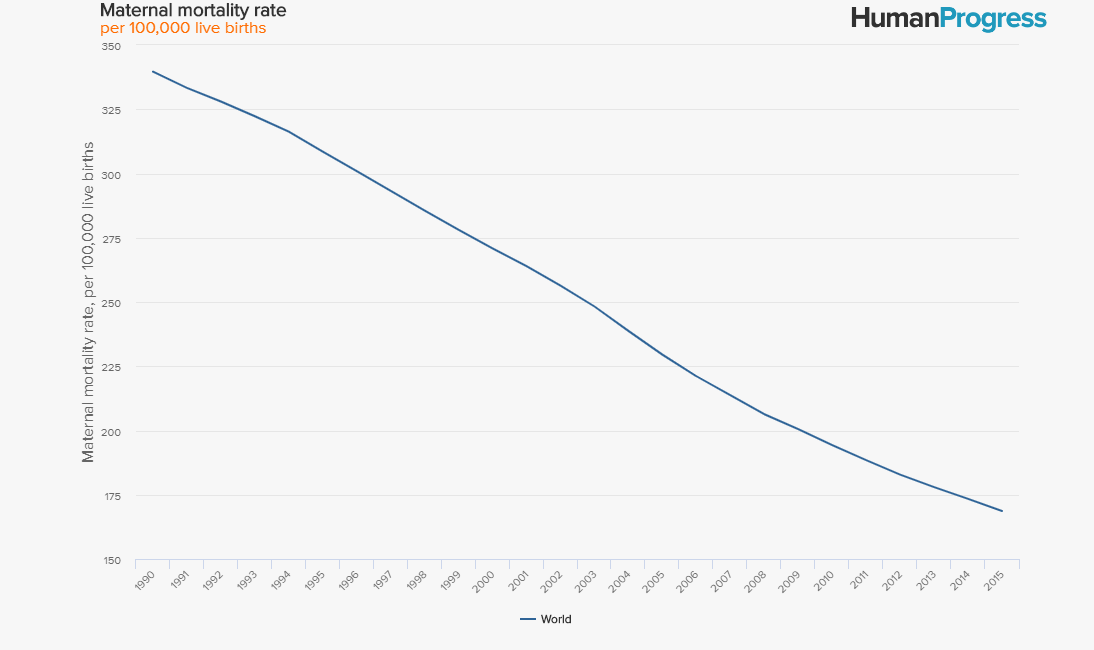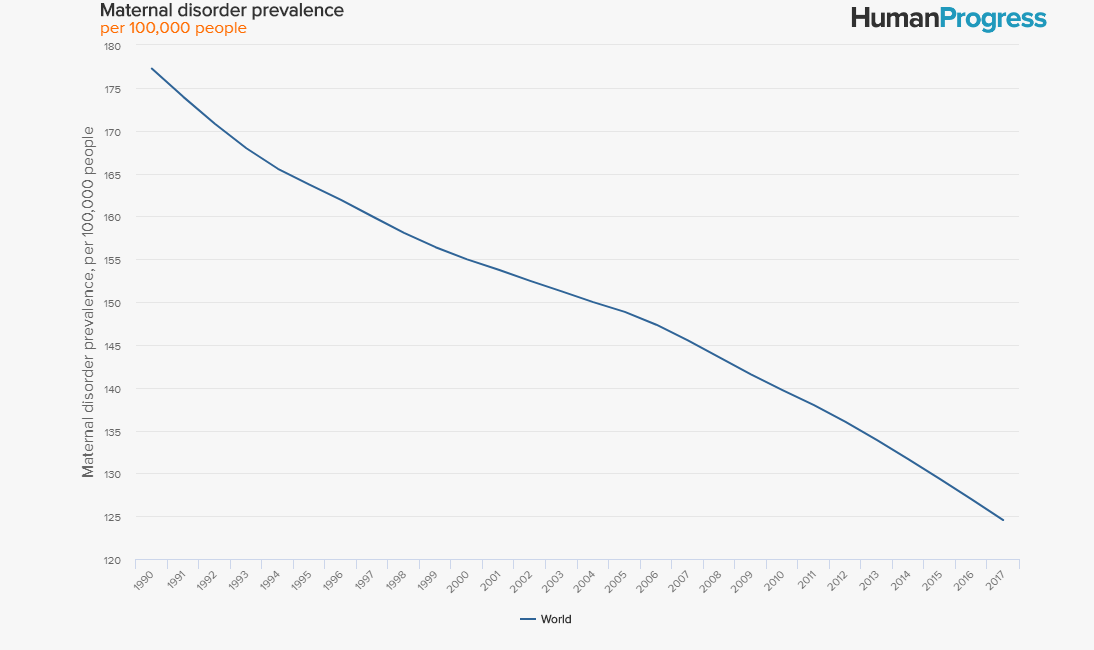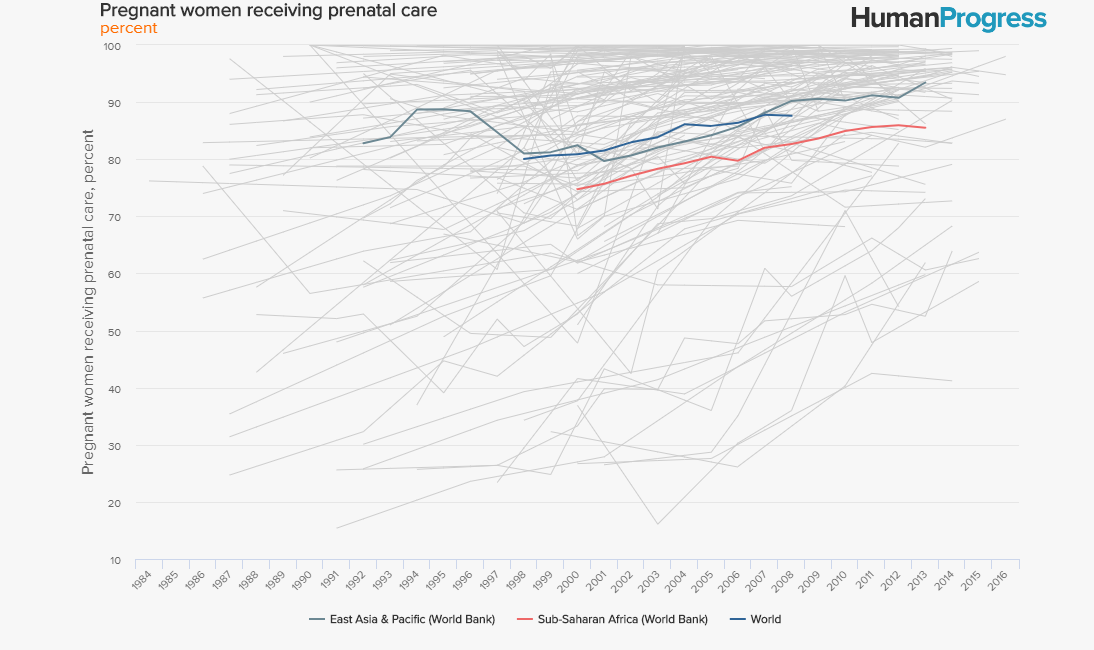Listen to the podcast or read the full transcript here.
In many places, fertility rates are hitting record lows. Practically all rich countries and many developing countries are now below the replacement fertility rate. Some countries are already seeing their populations age and decline, and if this continues for long enough, the global population will begin to shrink.
Your piece discusses an aspect of this topic that I find really interesting. So, let’s walk through it. You begin with an anecdote about how, a little over a year ago, you were conducting an interview about the possible causes of fertility decline. Tell me what happened.
I write on this topic with some frequency, and I follow research on it very closely, so I often interview people who research fertility, economists, sociologists, demographers, and so on. And so I was interviewing somebody, a demographer, about a certain cause of fertility decline. At one point in the interview, she kind of stopped and wanted to clarify that the issue here is that people are having fewer kids than they want. She wanted to make it clear that she wasn’t saying we should raise the birth rate for any kind of national interest.
My piece pushes back on that way of thinking.
Why do you think people tend to characterize the falling birth rate issue this way?
I think there’s a sense that catastrophizing low fertility could justify taking really drastic and coercive steps. And I think that is a major and legitimate concern. Getting the state involved in getting people to have children or stop having children could be a legitimate threat to civil liberties.
People also sometimes acknowledge that falling fertility is a problem, but they redefine it. They’ll say something like, “There are going to be economic challenges because of low fertility, but the problem is with our economic system, so let’s just change the economic system.”
I am sympathetic to people who want to talk about economic reforms, especially if pension systems, for example, are unsustainable. But as you say, there is no reason you can’t discuss both of those things.
There are definitely ways that we can adapt our economic system to low fertility, but there are limitations to that approach. You get this sense that people think that the need for children is just a byproduct of capitalism, and if we just changed our economic system, then we wouldn’t need endless growth propped up by a high birth rate. Maybe we can tweak our pension system, or become less reliant on GDP growth, but it’s a fact of human existence that you need new people to take over as the rest of us get older.
Now, some demographers and economists push back on the idea that anything below replacement-level fertility is going to cause massive issues. Some think that we could have anything above 1.5 births per woman, and with immigration, technological advancement, and education, we’ll be fine. One demographer that I spoke to said that since we are becoming more productive per capita as time goes on, each generation has “broader shoulders,” to stand on. So, maybe we can do more or as much as we are currently doing with fewer people.
That said, you can’t have a society without kids. We don’t know exactly when the falling birth rate becomes a big problem or how long we have before it’s a big problem. Lots of room for disagreement there. But eventually, it becomes a problem.
Let’s talk about some of the reasons that people are choosing to have fewer children. You make a very good point that in the past, parents captured more of the fruits of their children’s labor, while today, most of us are raising kids who will spend most of their lives working for someone else.
Yeah, for a lot of human history, parents were employers who grew their own laborers. There were steep economic incentives to raise kids. It could be brutal on a personal level. If you couldn’t bear children, your husband might put you aside and find somebody else who can. Today, parents still do a lot of the work of raising children, but they’re raising kids who are going to work for somebody else.
Of course, there are still practical reasons to have children. Basically everywhere in the world, lots of elder care is done informally by family members, especially adult children. However, even still, that care is not reliable in a liberal society. This is how liberalism works: when you grow up, nobody can tell you what to do, including your parents. So, I think capitalism, labor markets, and liberal values in general have altered the relationship between parents and children in a way that fundamentally changes the economics of child-rearing.
I do think it is easy to oversell the importance of economic considerations and downplay the psychological or cultural factors. It’s notable that, to date, no amount of government spending anywhere in the world has successfully restored sub-replacement birth rates to replacement levels.
You spend a lot of your piece talking about another factor in people’s decisions about having children: the feeling that having children is good for your society’s future. Could you tell me a bit about that?
People often pitch parenthood as simply an experience that makes the parents feel good without acknowledging the important role parents play in society.
I think that undermines the case for parenthood. If we pretend that parenthood is just about you being happy, we rob parents of a source of satisfaction. Imagine if we tried to recruit people to the army by saying, “It doesn’t really matter how many people sign up. This is about you getting the experience of holding a gun and riding in a tank.” I really don’t think anybody would join. People are motivated to serve their communities. So why are we downplaying that? Why are we so scared of saying, “you should consider having kids because we need parents”?
How do you think that relates to this view that the world is overpopulated and having kids is essentially selfish? Do you think that kind of messaging might affect people’s decision-making?
Absolutely.
A couple of years ago, I signed up for this half-marathon hike and ended up hiking it with this woman who was a total stranger, and we were talking about fertility rates. You can’t go on a half-marathon hike with me without me talking about fertility; that’s pretty much inevitable.
So, we were chatting, and she, at one point, said that she felt like she was harming the planet by having kids, and since she had to take maternity leave, she was also slowing down work. She felt like she was doing a selfish thing and drawing resources away from the planet and from her workplace in order for her to have the experience of parenthood.
If that is how you view parenthood, it becomes a lot harder to justify the decision. And if you already have personal reservations like, “would I be a good mother?”, it could easily tip the scales toward not having children.
This topic is very tricky for those of us who are devoted to a free society. I really love the last paragraph of your piece. You say:
Those of us who want to reverse falling fertility while preserving the values of a liberal society have a tricky task ahead. We’ve got to hold two truths at once: that no one ought to be coerced into parenthood, and that we will all suffer if no one raises kids. That may seem like an impossible line to walk—and yet, we walk versions of it all the time. I don’t think there’s anyone in the world that would hesitate to admit that we need doctors. And yet, most of us agree no one should be coerced into medical school. In other words, acknowledging the necessity of parents while respecting individuals’ right not to become one is really just a matter of applying the same logic to parenting that we do to every other path in life.
Could you expound on that?
I think most people can agree that we don’t want people to be coerced into parenthood, but we can’t allow that concern to make us overlook the fact that we need parents. They provide an essential service in society. So we have to be willing to hold both of them at the same time. I think people just have this impulse that that’s not possible, but we do this all the time with other types of work.
If we go with the military example, most people think that national security is important, but most people also oppose conscription. They want a volunteer army. It’s the same with basically any line of work. We don’t like forcing people to do things, but that doesn’t stop us from acknowledging that society can’t function without doctors or teachers.
You’re basically just suggesting that people voluntarily give more social recognition to parents. And you write that all around you, you can see that parents, and mothers in particular, are desperate for recognition that the work they are undertaking is valuable for the world. Do you think that more social recognition could shift the culture toward higher birth rates?
I do. I’ve always thought that parenthood is really important, but I constantly felt like the culture was telling me otherwise. There is this assumption that you shouldn’t get married and have kids right after college, right? That you should do something with your life. But having kids is doing something. And there are lots of ways that we denigrate parenthood and treat it as a waste of somebody’s skills and talents.
If we thought more about the work of parenthood in the way that we think about other work, if we treated it like a really cool way of contributing to society, maybe people would be more motivated to go into that line of work.
If you look at the few populations in wealthy countries that do have high birth rates, religious communities, for example, those populations give people a lot of positive messaging about how raising children is a good thing for society.
I just remembered that the woman I went on that half marathon hike with, who seemed to believe she had done a selfish thing by having children, told me about a time she visited Jordan. She was so struck by what it was like to have a child there. In the UK, where I live, sometimes when you go into a coffee shop, people almost groan if they see you brought your kids. But in Jordan, she said that when she would walk into a coffee shop or a restaurant, it felt like she had gifted them this child. She felt an overwhelming sense that people were delighted that she had this child there, and she didn’t even live in Jordan. I think this kind of social recognition changes how you think about having children.
Another other thing to remember about social recognition is that it’s free. It doesn’t cost taxpayers a single dime, and there’s not really any downside to people just voluntarily giving this kind of recognition to the parents in their lives.
One of the reasons that people are hesitant to talk about birth rates is that, as you wrote in your piece, it can feel icky to have a strong opinion on such a personal decision. You don’t want to try to make everyone follow the same path and become a parent.
I think we need to use other types of work as a model for how we think about parenthood. There are a lot of roles that need to be filled in society, and just because you are not filling all of them doesn’t mean that you’re failing society. You can appreciate the existence of doctors and nurses without feeling bad that you are not a healthcare worker.
We usually end this podcast with an optimistic note. What trends, if any, make you feel optimistic about the future of birth rates?
I think that people are becoming more receptive to the idea that parenthood, motherhood, and caregiving are valuable and often overlooked. It feels like we’re on the cusp of being willing to admit that we need parents. Not in a catastrophizing way, but in a “hey, this is important” way. So, I think we’re moving in the right direction.








